By Yousef Ramazani
US President Donald Trump's surprise decision to suspend foreign “aid” programs has ignited a firestorm of anger and antagonism among hostile anti-Iranian groups in the West.
On the first day of his second term, Trump signed 26 executive orders, one of which – Executive Order 14169, titled "Reevaluating and Realigning United States Foreign Aid" – mandates a 90-day pause on all US “foreign development assistance” worldwide.
After the order was signed, the US State Department swiftly froze all foreign aid initiatives, with the notable exceptions of the Israeli regime and Egypt – the two largest recipients.
Under the order, the disbursement of federal funds to any non-governmental organizations (NGOs), international bodies, and contractors tasked with delivering US "aid" is prohibited.
This has caused a major disruption to a multibillion-dollar “regime change” apparatus led by the United States Agency for International Development (USAID) and the National Endowment for Democracy (NED), both with a notorious history of financing groups designed to and undermine destabilize foreign governments in order to advance US interests.
USAID alone commands an annual budget of tens of billions of dollars, working in tandem with the notorious spy agency CIA to orchestrate "regime change" operations worldwide.
From Latin America to Eastern Europe and Western Asia, the US has funneled billions into NGOs and so-called "independent" media outlets, all in the name of "democracy promotion," fueling color revolutions and a myriad of covert operations under the guise of spreading freedom.
As far back as the early 1990s, NED co-founder Allen Weinstein candidly confessed in an interview, "A lot of what we do today was done covertly 25 years ago by the CIA."
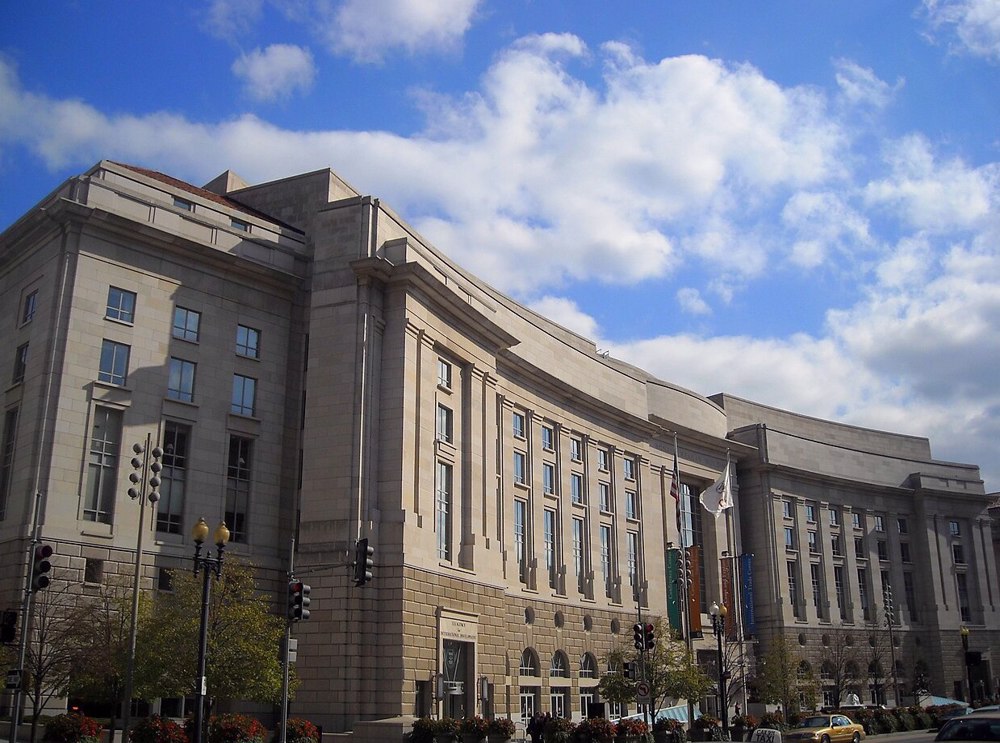
Within days of Trump's signing the order, chaos, and confusion reigned supreme as hundreds of "internal contractors" at USAID were placed on unpaid leave or outright fired from the organization, and the NED came forward to inform its beneficiaries that funding would be halted immediately.
Both Trump and Elon Musk, the richest man in the world and Trump’s key aide, launched scathing critiques of the two organizations in order to settle their scores with the previous administration.
Trump derided USAID as "run by a bunch of radical lunatics," while Musk labeled it a "ball of worms" and a "criminal organization" that "deserves to die." Musk didn’t hold back on the NED either, condemning it as an "evil, criminal and corrupt" entity that "needs to be dissolved."
Their tirade, paired with the executive order’s declaration that "they serve to destabilize world peace by promoting ideas in foreign countries that are directly inverse to harmonious and stable relations internal to and among countries," resonated in several countries, including the Islamic Republic of Iran.
Initially, the move was seen by many pundits as a welcome gesture and a promise that the US would cease interfering in internal affairs. However, that optimism quickly waned after further clarifications about the real motivations behind the freeze.
US Secretary of State Marco Rubio clarified that the funds were cut not out of a shift in foreign policy, but because these organizations had failed to fulfill their mission, keeping 88 cents of every dollar they received for administrative costs, and only spending 12 cents on the intended goals.
The freeze, it seemed, was not a shift in international diplomacy, but a stark message for USAID and NED to reevaluate their “regime change” operations if they hoped to regain funding.
Despite their failures in countries like Iran, Venezuela, and Cuba, USAID and NED had previously found success in Eastern Europe and the Arab world. But recent years have seen a string of setbacks, leading to their current crisis.
A shock for anti-Iran activists
Trump's decision to pull multibillion-dollar funds from various countries sent shockwaves through anti-Iran circles in the West. NGOs, media outlets, and “regime change” enthusiasts across the globe began scrambling, uncertain of their future.
The freeze on USAID funding has resulted in the suspension of around $268 million earmarked for supporting "independent media and the free flow of information" for the year.
USAID had recently touted its backing of over 6,000 journalists, around 700 newsrooms, and roughly 300 media-centric civil society groups across 30 countries.
Many of these organizations, posing as impartial champions for the rights of the Iranian people, are now struggling to maintain their façade as their financial ties to the US government become glaringly evident.
Leaked documents and intelligence reports reveal that Washington had allocated tens of millions of dollars in recent years to subversive groups, Persian-language media, and activists working against the Islamic Republic.
But with the cessation of foreign aid, many of these entities find themselves at a crossroads.
Ataollah Mohajerani, Iran's former Minister of Culture and Islamic Guidance, weighed in on the shift: "From day one, Trump disappointed and practically destroyed the opposition seeking to overthrow the Islamic Republic. The approximately $60 million that was being given to those claiming to pursue regime change in Iran is no longer available. That cup is broken, and that vessel is spilled."
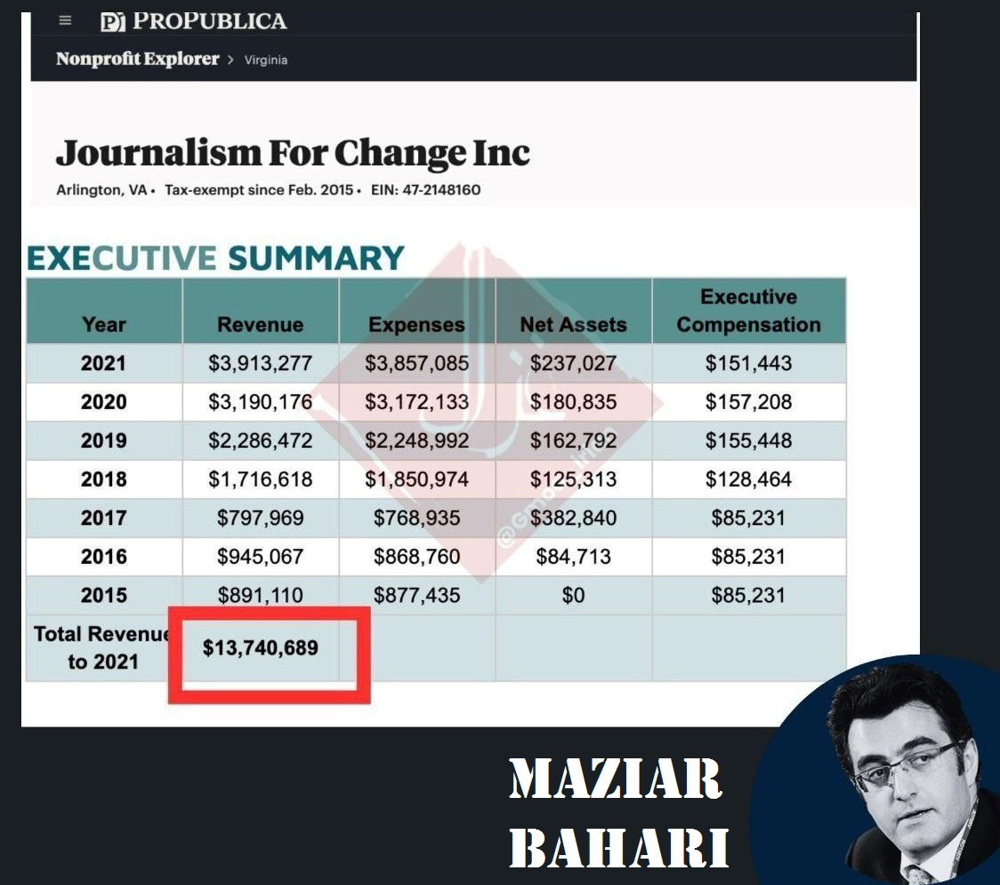
Ironically, numerous anti-Iran mercenary groups, long supportive of Trump’s anti-Iran stance, had anticipated a surge in funding after his re-election. Instead, they now face the stark opposite – a financial freeze that has thrown their operations into turmoil.
According to the BBC, over thirty organizations and media outlets focused on Iran have been hit by this suspension, though the specific names of these entities remain undisclosed.
These Persian-language institutions and media outlets have been forced to cut back on part-time staff, a move that could profoundly impact both their work and the livelihoods of their active personnel.
The British state-controlled broadcaster further reported a sense of confusion among these groups. Crisis meetings were plagued with uncertainty as they received letters with conflicting information, leaving them in the dark about whether the suspension was temporary or permanent.
This disarray has also been felt by rabble-rousers working with other counter-revolutionary TV channels, such as Iran International, who share similar frustrations about the suspension of activities and an unclear future.
Shahram Homayoun, a Los Angeles-based director of Channel One, and an opponent of the Islamic Republic, decried the funding freeze as “unprecedented in history.”
"Mr. Trump's decision has shut down all Iranian movements, and some people have become orphans and are in mourning."
Affected groups and individuals
The full extent of the damage to anti-Iranian individuals and entities is difficult to assess, primarily due to the opaque nature of their financing.
Few organizations, particularly those based in the US, openly acknowledge USAID or NED as donors. Instead, they often maintain the image of “independent” elements acting altruistically or through donations from like-minded supporters, leading to the appearance of “spontaneous” campaigns.
According to Reporters Without Borders (RSF), the true impact of this funding freeze remains shrouded in uncertainty. Many recipients are reluctant to speak out, fearing political repercussions or the loss of future funding opportunities.
Moreover, funds are often funneled through intermediaries or integrated into larger so-called “democracy-promotion” programs, making it challenging to trace direct links.
USAID does maintain a dataset on foreign aid by country, though Iran is conspicuously absent from the list due to the ban on direct aid. NED, for its part, stopped publishing its financial reports several years ago, further obscuring the financial landscape.
Since 2009, the US State Department’s Near East Regional Democracy (NERD) program has served as the primary source of US support for so-called “human rights” and “civil society” in Iran. This program has funded training for Iranian “regime change” engineers outside the country, with annual expenditures ranging from $65 to $85 million.
Recently, investigative journalist Kit Klarenberg uncovered a leaked classified US State Department invitation for bids from private contractors and intelligence-linked entities such as NED and USAID, shedding light on the behind-the-scenes workings of these organizations and the profound impact of the suspension on their global operations.
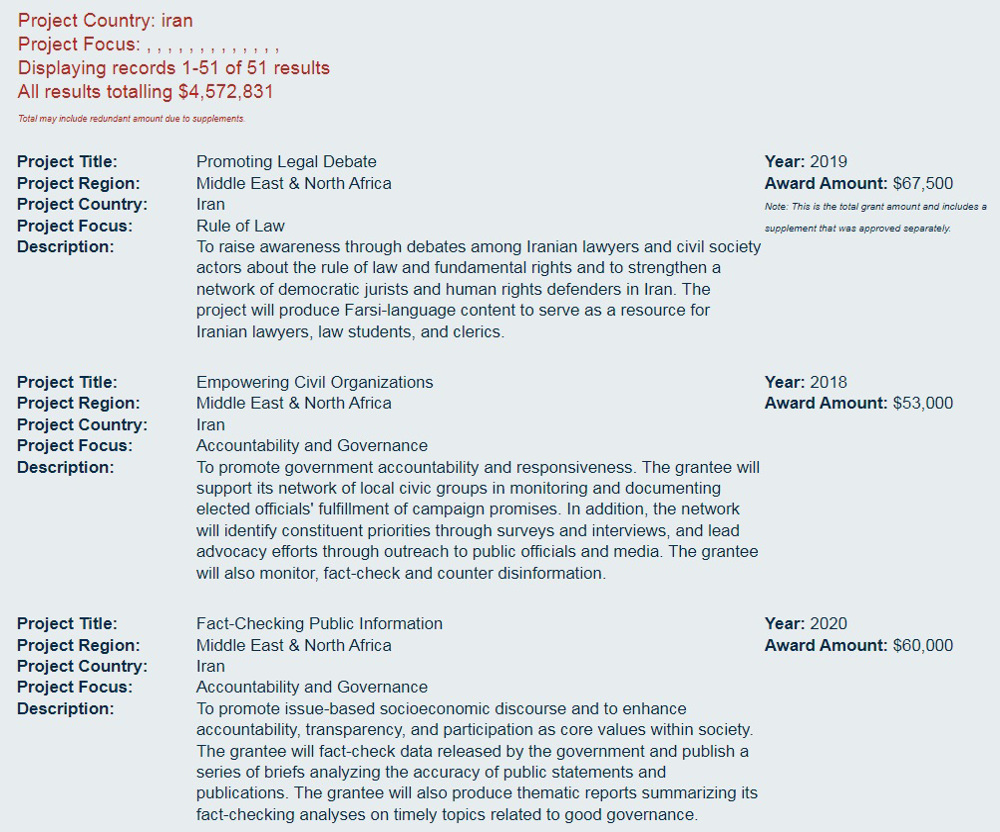
Klarenberg points out that the flow of US government money, particularly through agencies like NED and NERD, remains shrouded in secrecy, making it difficult to trace exactly where the funding ends up and who benefits.
Details of these covert operations are systematically concealed, with the mainstream media claiming such information is classified due to the non-existent "risk" posed to activists.
However, Klarenberg argues that Washington's secrecy has more to do with covering up the dubious nature of these operations.
Public records that were later deleted reveal that NED alone invested at least $4.6 million in 51 different counter-revolutionary efforts in Iran between 2016 and 2021, but only seven of these projects named the organization responsible.
The Abdorrahman Boroumand Center, based in Washington DC, was one of the few to be identified, leaving the remaining 44 recipients shrouded in mystery.
Press TV website investigation reveals that in the year leading up to the September 2022 protests in Iran, NED allocated nearly $1 million to projects focused on so-called "human rights" advocacy, yet not a single participating organization was named.
This money flowed into an unnamed entity tasked with "monitoring, documenting, and reporting on human rights violations" and working with self-styled “activists” inside Iran to bolster their digital security and advocacy efforts.
Anti-Iran groups masquerading as media houses, particularly Boroumand Center, IranWire, BBC Persian, and others, have found themselves under scrutiny as potential beneficiaries of this covert funding from the USAID.
Hamidreza Gholamzadeh, a foreign policy analyst and international affairs head at Tehran Municipality, noted that the IHRDC, Tavaana, and Boroumand Center were likely funded by NED, while IranWire probably received direct support from the US State Department.
Not so anonymous
Though many of these recipients maintain an air of anonymity, their identities can often be uncovered through detailed analysis of past interactions with Western operatives, intelligence leaks, and the activities of the individuals and groups involved.
Recent reports by The Grayzone and The Cradle, based on leaked documents, have shed light on NED’s and NERD’s most recent regime-change strategy.
In October 2022, Iran's Intelligence Ministry and the IRGC Intelligence Organization issued a joint report detailing the origins and methods behind the riots, with Brigadier General Mohammad Kazemi providing additional insights in a June 2023 interview.
Iranian counterintelligence apparatus has long been adept at recognizing the tactics of Western hybrid warfare, tactics that have been creeping into the country since the late 1990s.
During that time, Western-backed organizations exploited the opportunity to infiltrate Iran under the guise of human rights protection. These groups often aimed to sow discord and destabilize the Islamic Republic.
One key example is Shirin Ebadi, the controversial leader of the so-called “Defenders of Human Rights Center,” who became a vocal figure in Western media and received numerous accolades, including a Nobel Peace Prize, for being a pawn in the hands of the US spy agencies.
Ebadi’s true agenda was far from altruistic. Her organization's activities were centered on freeing dreadful prisoners and inciting divisions along ethnic and religious lines in the country, masked under the rhetoric of “political prisoners' rights.”
In 2009, Ebadi’s true allegiance became apparent when she fled to London, expressed pro-Israel sentiments, and openly called for the overthrow of Iran's democratic political system.
Her report naming a conservative Deobandi imam as a potential "ally" of the West in Iran exemplifies how she saw certain figures, not for their shared values, but as pawns to stir unrest among Iran's southeastern population.
This example highlights the deeply intertwined nature of foreign-backed operations and the methods used to destabilize nations under the guise of democracy promotion.
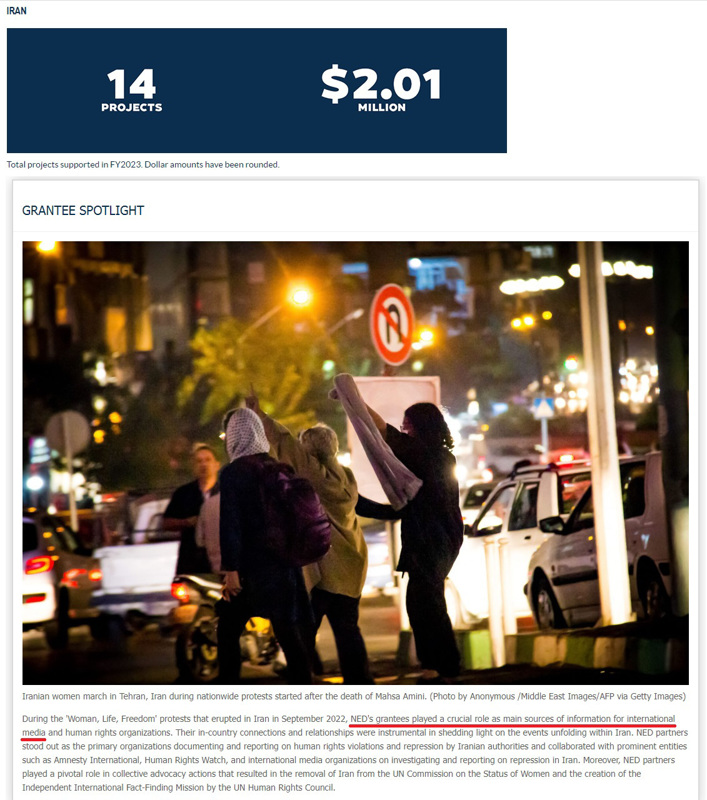
Repeating the failed strategies
Although Iranian security forces have repeatedly exposed and dismantled many of these foreign-backed networks, Western governments have stubbornly continued using the same tactics – albeit with new faces and new methods.
In 2023, another relatively unknown Iranian figure, Narges Mohammadi, was suddenly catapulted to international fame with a Nobel Prize, celebrated in Western media as a so-called "human rights defender."
Yet, much like her predecessor Ebadi, her activism had little to do with genuine women's rights or political reform. Instead, it revolved around defending convicted terrorists, separatists, and murderers, rebranded in her statements as “dissidents,” “ethnic activists,” or “human rights defenders.”
Among the individuals she championed was Abdolmalek Rigi, the notorious leader of the Jundallah terrorist group, responsible for multiple deadly bombings across Iran.
She also vocally supported Navid Afkari, who was convicted of brutally murdering a security officer during anti-government riots in 2022, and Ramin Hossein-Panahi, a Komala terrorist caught planning attacks on International Quds Day rallies.
Their cases were whitewashed with the usual rhetoric of “judicial lapses” and “forced confessions,” despite undeniable material evidence proving their crimes.
Like Ebadi before her, Mohammadi funneled large sums of foreign money to lobby officials, fund high-profile lawyers, influence media narratives, and even pressure victims' families to withdraw demands for justice.
These efforts were designed not just to secure the release of violent criminals, but also to send a chilling message: future terrorists and rioters need not fear consequences, as they would receive full Western-backed support under the guise of “human rights.”
This pattern of elevating marginal figures into political celebrities, portraying them as persecuted heroes, and weaponizing their image for broader geopolitical agendas, is not unique to Iran.
It has been a key element of Western interference in multiple countries.
Crucially, the activities of both Ebadi and Mohammadi align perfectly with the findings of Iranian intelligence reports and leaked US government documents detailing regime-change strategies.
Iran’s joint Intelligence Ministry and IRGC Intelligence Organization report from October 2022 explicitly named the so-called “Defenders of Human Rights Center” (DHRC) as a front for US-backed subversion under the NERD project.
The report deftly exposed how these networks operate as mercenaries of US government agencies, working to destabilize Iran through media influence and social unrest.
Brigadier General Mohammad Kazemi further elaborated on these operations, revealing that one exposed project involved $550,000 in media funding to incite ethnic and religious minorities in Iran’s border regions and amplify the coverage of riots.
These findings align with Klarenberg’s investigative report for The Cradle, which uncovered leaked NERD documents detailing a US program aimed at recruiting and training “aspiring female and ethnic minority leaders” to spearhead activist movements in Iran.
The report also revealed how millions of dollars were funneled through NED between 2016 and 2021 to fuel counter-revolutionary networks, with one of the key objectives being to “encourage lawyers and clerics to agitate for democratic reforms.”
Despite the exposure of these tactics, the pattern repeats itself, only with new names and new PR campaigns designed to manufacture dissent and destabilize sovereign nations.
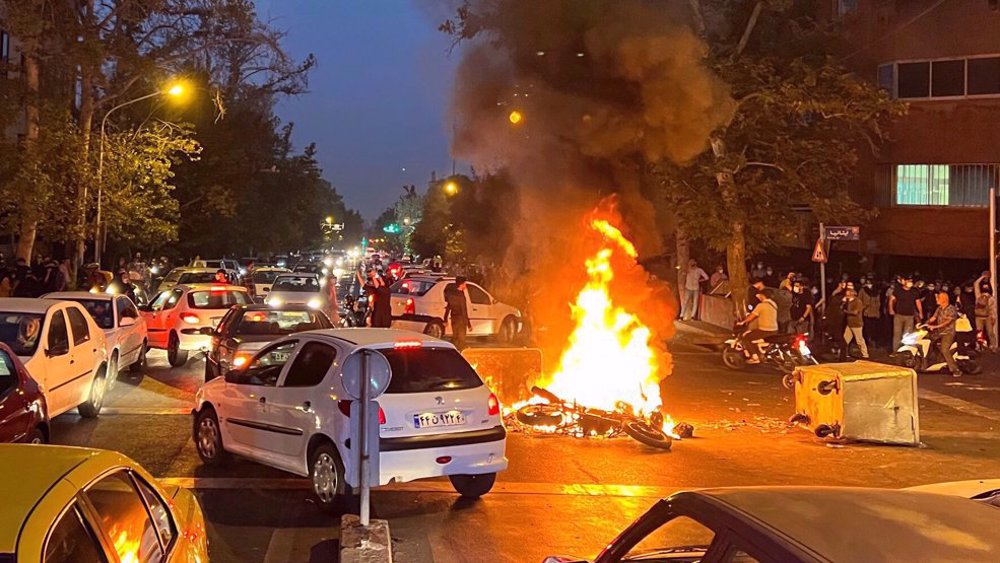
Veterans and rookies: A web of subversion
Ebadi and Mohammadi are far from the only seasoned operatives enlisted by Western intelligence in Iran. These veteran agents, identified as key figures in various subversive activities inside the country, are merely the tip of a vast, covert network.
Among the most prominent names in this shadowy cadre are self-proclaimed journalists Maziar Bahari, Omid Memarian, and Masih Alinejad, who were deeply embedded in propaganda activities during the 2000s. Alongside them stands Fatemeh Haqiqatju, a former Iranian parliamentarian turned rabble-rouser.
A 2022 joint intelligence report explicitly named Haqiqatju as the mastermind behind clandestine training programs in Georgia, where recruits were schooled in hybrid warfare and soft subversion tactics. These sessions, generously funded by NERD, provided attendees with airfare, accommodation, meals, and intensive training in political destabilization.
The same extensive program, spearheaded by Western and Israeli intelligence services, was conducted across 12 countries, sometimes with, sometimes without, the awareness of local governments.
Here, mercenaries underwent rigorous preparation in urban warfare and social rebellion techniques, including violent methods of assassination and targeted property destruction.
For their efforts, these operatives were lured with enticing incentives: hefty financial rewards, legal protections, guaranteed international media coverage in case of arrest, and eventual resettlement in the West, a safety net ensuring their continued service.
The organizations behind these training initiatives form a sprawling network, including United for Iran, Justice for Iran, Irex, Freedom House, Small Media Foundation, Siamak Pourzand Foundation, Impact Iran Coalition, Tavaana, Boroumand Center, Yalda Institute, and Ebadi’s DHRC.
Notably, Bahari, Memarian, and Alinejad followed the same path as Haqiqatju, relocating to Western countries where they operate anti-Iran propaganda platforms, media outlets, and advocacy campaigns.
This well-connected network not only disseminates anti-Iran narratives but also actively agitates for fringe, externally driven agendas. One such initiative is the push for a so-called “referendum” aimed at dismantling the Islamic Republic—an effort orchestrated by these US-affiliated operatives.
As Klarenberg's investigative article reveals, NERD meticulously plotted to infiltrate Iranian civil society, with hopes of staging "mock national referendums" outside Iran’s legitimate structures.
The goal? To fabricate an illusion of public dissent, amplifying foreign propaganda claims that the government and people stand at odds.
Yet, reality paints a different picture. The overwhelming majority of Iranians support the Islamic Republic, a fact corroborated even by foreign polls, including those from the University of Maryland’s CISSM, which indicate that fewer than one-sixth of Iranians express interest in regime change.
Even former US Secretary of State Antony Blinken conceded at the end of last year that Washington’s repeated attempts to topple Iran’s leadership have failed, a direct result of the nation’s deeply entrenched public support for its government.
Despite this, the referendum ruse remains a favored tool among Western-backed activists, championed by figures like Ebadi, Mohammadi, their Deobandi cleric of choice, and various media outlets aligned with veteran subversives.
Through a coordinated web of influence, funding, and deceit, they persist in their efforts to fracture Iran’s sovereignty, but history has shown their schemes to be illusions doomed to collapse.
Press TV’s website can also be accessed at the following alternate addresses:




















No comments:
Post a Comment